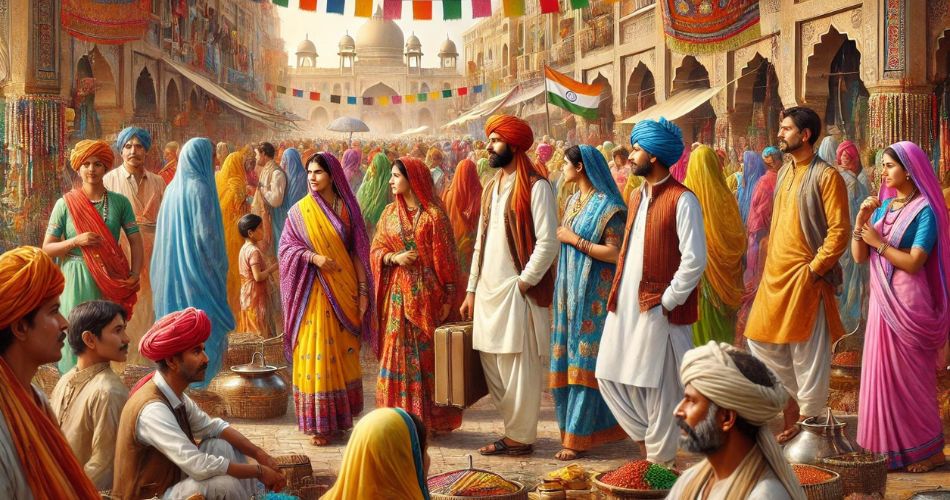Briefly
In Indian culture, symbolism plays a significant role and it is deeply intertwined with spiritual, socio-cultural, and philosophical aspects. Each symbol has a profound meaning that often reflects core Indian philosophies. They range from objects, animals, plants, to geometric shapes, each carrying its own essence and interpretation. These symbols are used to communicate ideas, beliefs, and values, playing a crucial role in rituals, ceremonies, and art.
- Symbolism: unity, divinity, balance, eternity, purity
Indians in Dreams
From a psychological perspective, dreaming about Indians often signifies the inner self and its connection with nature, spirituality and wisdom. It represents the part of your psyche that is untamed, natural, and instinctive. This symbolism may also indicate the need to listen to your intuition and inner wisdom. Dreaming of Indians could also reflect your desire to connect with your roots or ancestral heritage.
- Dream Symbolism: inner wisdom, connection with nature, intuition, ancestral heritage
Indians in Myths and Folklore
Indian folklore is rich with myths and legends featuring a plethora of symbols. For instance, the lotus, considered sacred, represents divine beauty and purity. Its ability to flower in murky waters symbolizes spiritual enlightenment. Similarly, the swastika, often misunderstood due to its adoption by Nazi Germany, is an ancient symbol signifying prosperity and good fortune. Animals like the elephant, symbolize wisdom, strength and royalty, while the peacock, the national bird of India, represents beauty, grace and pride.
- Folklore Symbolism: divine beauty (Lotus), spiritual enlightenment (Lotus), prosperity (Swastika), good fortune (Swastika), wisdom (Elephant), strength (Elephant), beauty (Peacock), grace (Peacock)
The snake, or Naga, holds a special place in Indian folklore. It is revered as a powerful and mystical creature that symbolizes fertility, rebirth, and transformation. The epic literature of Mahabharata and Ramayana features many stories of Nagas. Similarly, the banyan tree is a potent symbol representing eternal life due to its ever-expanding branches.
- Folklore Symbolism: fertility (Snake), rebirth (Snake), transformation (Snake), eternal life (Banyan tree)
See also our Free Dream Interpretation Tool
Indians Spiritual Meanings
Indian spirituality assigns many symbolic meanings to elements of nature, animals, and geometric shapes. For example, the Om symbol, regarded as the sound of the universe, signifies the essence of ultimate reality and consciousness. The Lotus, often seen in the hands of Indian deities, denotes spiritual awakening, purity, and the unfolding of spiritual potential. The cow, considered sacred in Hinduism, stands for abundance, fertility, and motherhood.
- Spiritual Symbolism: ultimate reality (Om), consciousness (Om), spiritual awakening (Lotus), purity (Lotus), abundance (Cow), fertility (Cow), motherhood (Cow)
Indians Tattoo Meaning
Indian tattoos often carry deep symbolic meanings. The lotus flower tattoo signifies spiritual growth and the quest for enlightenment. A Ganesha tattoo represents wisdom, success, and the removal of obstacles. The Om symbol, a popular choice for tattoos, symbolizes the eternal cycle of life and death. Animal tattoos, like the tiger, symbolize power, strength, and courage, while the peacock tattoo signifies beauty and integrity.
- Tattoo Symbolism: spiritual growth (Lotus), enlightenment (Lotus), wisdom (Ganesha), success (Ganesha), life and death cycle (Om), power (Tiger), strength (Tiger), beauty (Peacock), integrity (Peacock)



